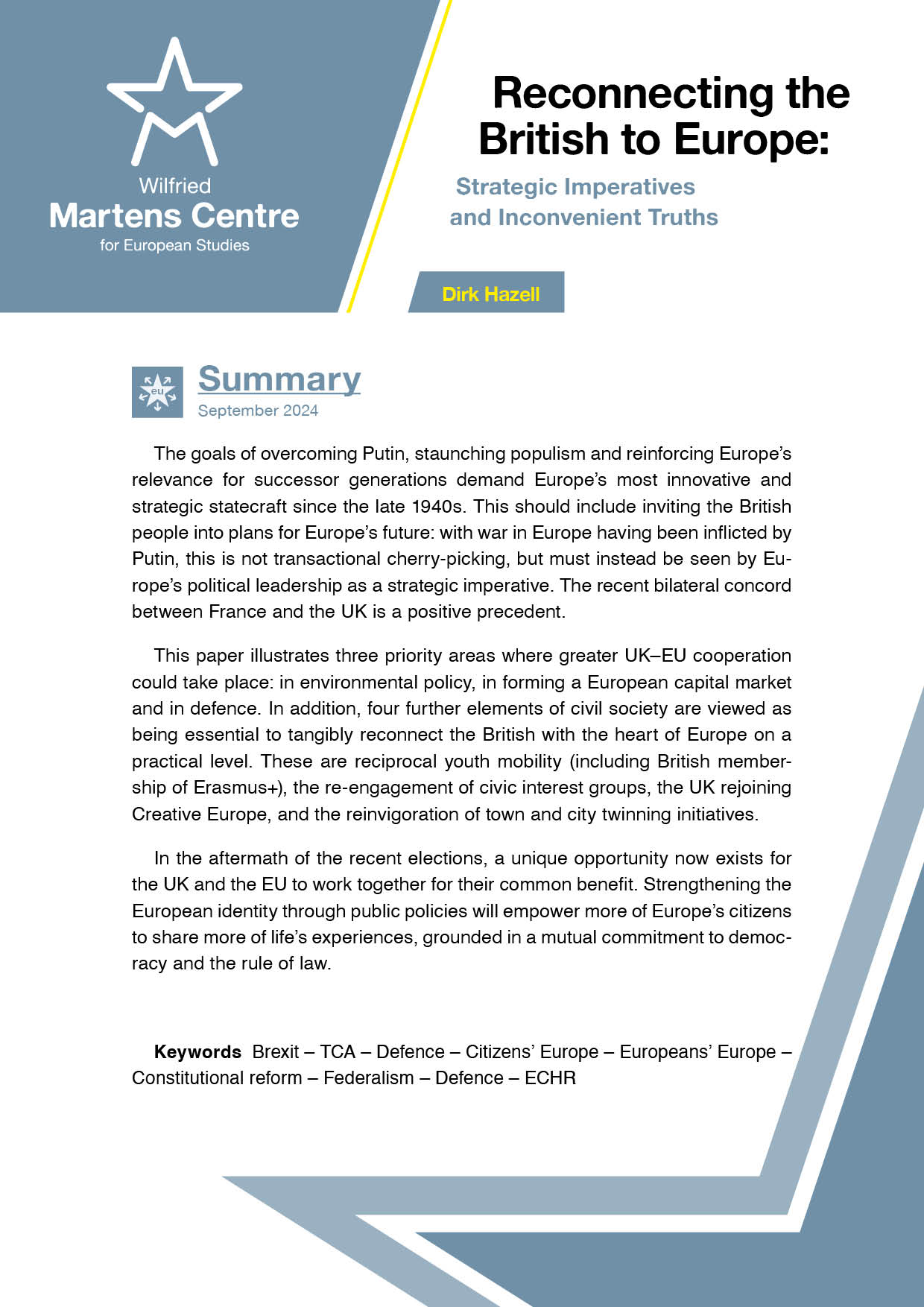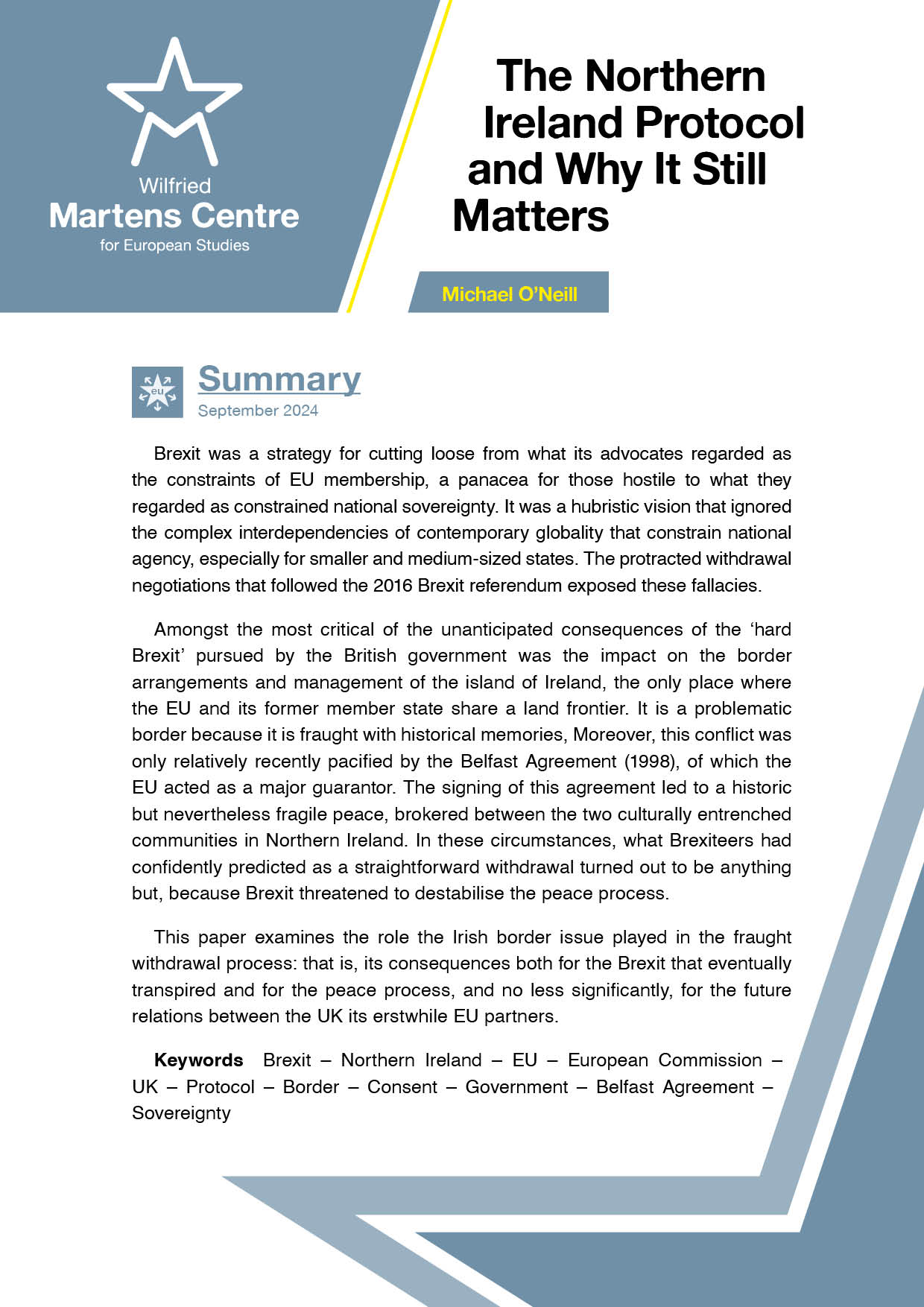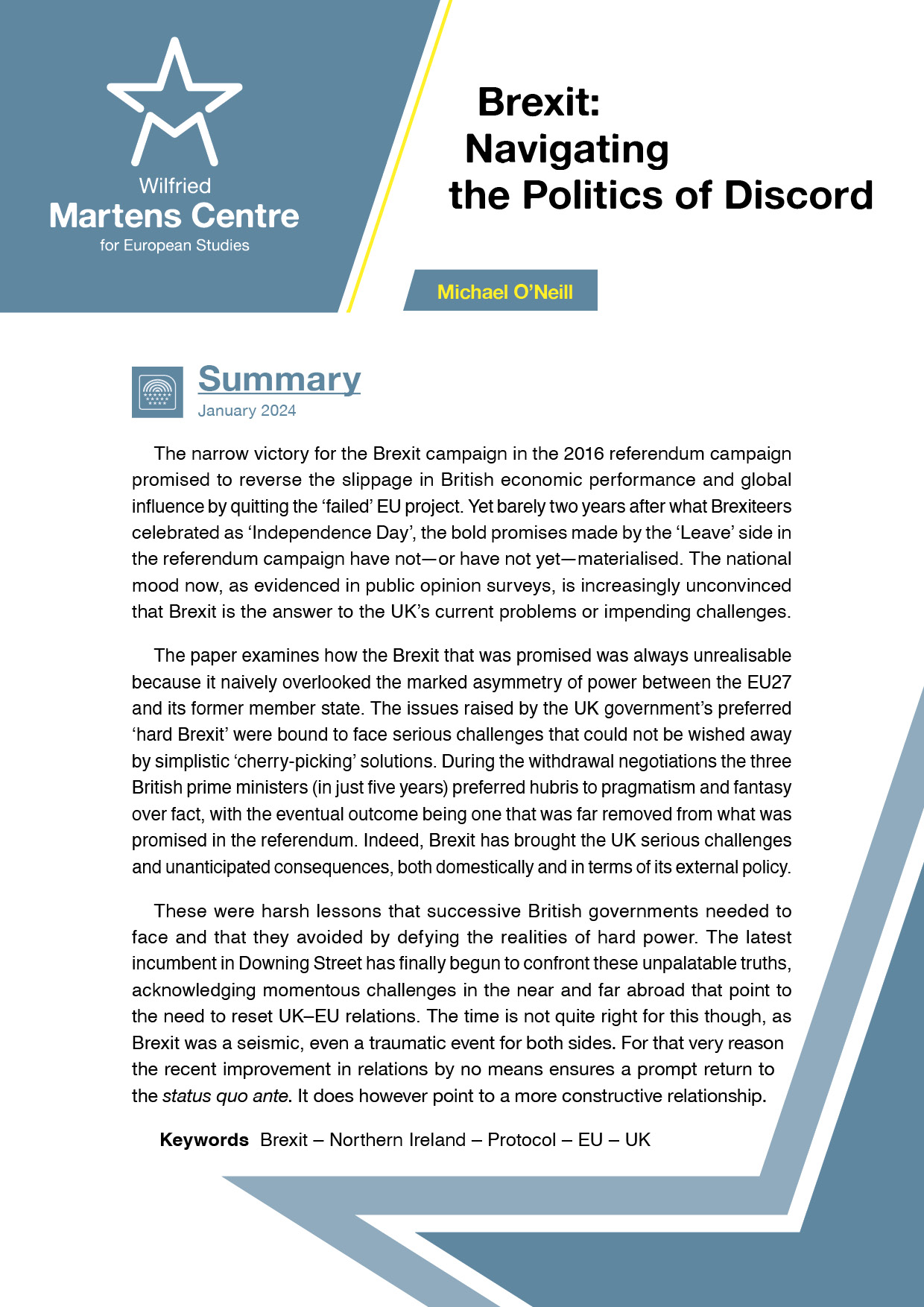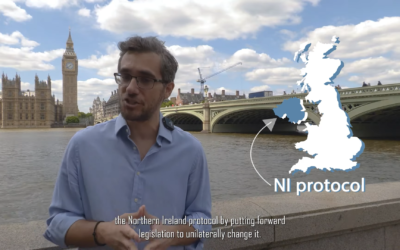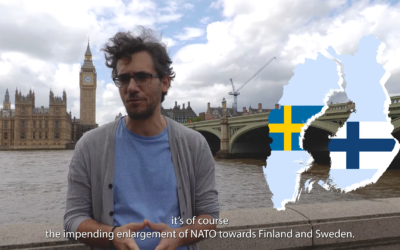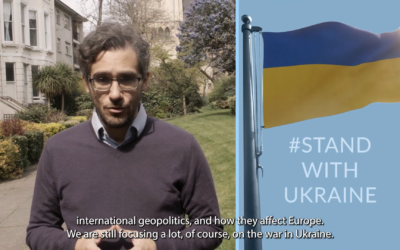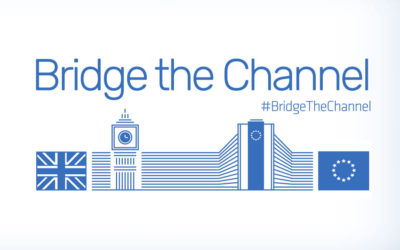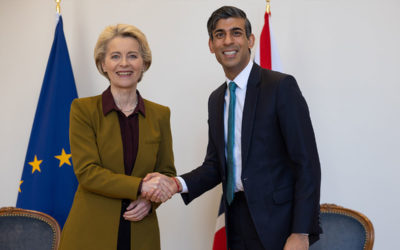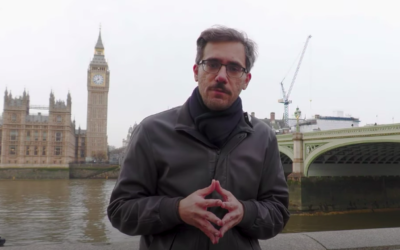The Vaccine Debacle Reveals That the EU is not Immune From Brexit
03 February 2021

The EU finds itself in the midst of a vaccine crisis, with the slow rollout of its vaccination program compounded by a feud with pharmaceutical company AstraZeneca and a diplomatic faux pas over the application of its vaccine export controls to Northern Ireland. It is clear that the EU’s vaccine debacle creates major questions for both its internal governance and its international standing. However, less attention has been paid to a more immediate and uncomfortable truth made clear by this episode: that Brexit has weakened not only Britain, but also the EU itself.
The early success of the UK vaccination campaign, whose comparison to the EU’s rates partly triggered the crisis, is a palpable demonstration of what its departure deprives the EU of. By most accounts, the EU was timid about partnering with private companies and addressing their financial demands. The UK, on the other hand, was more proactive in helping partner scientific with market actors like Oxford and AstraZeneca, as well as quicker in signing procurement deals and approving vaccines for use.
The stereotypes about a ‘flexible’ and ‘pro-free market’ UK versus a ‘rigid’ and ‘bureaucratic’ EU are often unhelpful, but it is hard to see how they do not apply in the case of the vaccine. It is difficult to admit, but it has now become clear that, with the UK in the fold, the EU’s vaccination strategy most probably would have been more effective. Access to UK universities and companies, a more commercial perspective of the needs of pharmaceutical actors, and a greater sense of urgency in the process for regulatory approval of vaccines would all have benefited the EU.
The struggles of a UK-deprived EU on the issue of vaccines may be a sneak preview of challenges to come in other policy areas. Security, finance, and digital governance are all areas that hold big challenges and where disruption is always possible in the future. They are also areas where the UK holds significant expertise and, as an EU member, historically took the lead in shaping EU policies. The vaccine debacle presages a future where the EU, unless it radically rethinks its ways, is poorer in ideas and less agile as an actor on the international stage.
For the UK, its vaccination success should not be interpreted as a vindication of Brexit or absolution of the Johnson government for all its previous failures in managing almost every other aspect of the pandemic. The exposure of the UK vaccine supply to the floated EU export controls should be a reminder that Britain will continue to need Europe. The British government avoided outright triumphalism this time, instead reaching out through diplomatic channels to the EU to clarify the application of the export ban to Northern Ireland. It is uncertain however that this or future British governments will resist the temptation to celebrate momentary ‘wins’ against the EU, with all this will entail for both sides’ ability to discuss and cooperate when common interests are at stake.
In any case, the EU should be humble to admit that this episode has exposed how, without the UK, it loses some of the necessary deftness and flexibility in dealing with market actors and adapting to crises, but also how antagonistic and disruptive Britain can be for its economy, health, and security. Although there is no indication that the UK purposefully sabotaged the EU’s vaccine efforts – as opposed to securing as much supply as possible with little regards for Europe – the very fact that a third country’s strategy created such adversity in Europe should be a wake-up call. However different in size, the EU can sustain important injuries by a UK that is disengaged and uninterested in its needs.
For too long, Europeans indulged in a stereotypical view of Brexit made up of chaos in Westminster and empty supermarket shelves. However, the vaccine crisis revealed after just a month that both the EU and the UK have been significantly weakened as a result of Brexit. Coming to terms with their mutual dependence, the two sides must use this episode as an opportunity to move closer in areas where their security and resilience can only be realised in partnership.
ENJOYING THIS CONTENT?






